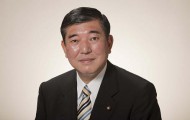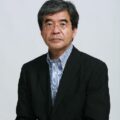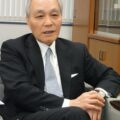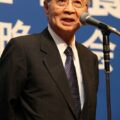(JAPAN POLITICS CHANGED?) LDP’s Change to Spur Change of Politics in Japan

Ishiba Shigeru
EDITOR’S SUMMARY: The Liberal Democratic Party (LDP) returned to power after three years and three months in opposition. Through its experience of being in opposition, the party keenly realized the need to become a party for the people and a policy-focused group actively engaged in dialogue with citizens, who embody the sovereignty of the nation. Mr. Shigeru Ishiba, who helped secure the LDP’s return to power as its secretary general, affirms that the administration of Prime Minister Shinzo Abe is one that can revive Japan by working out solutions to the country’s long-sidestepped issues, and argues that the changes the party is embracing will initiate true changes in Japanese politics.
Old LDP Not Wanted by the People
The LDP won a landslide victory in the House of Representatives late last year and returned to power, together with the New Komeito party. The first reason why the people chose the LDP was the deep disappointment and aversion they felt toward the Democratic Party of Japan (DPJ). Secondly, new parties such as the Japan Restoration Party and the Tomorrow Party of Japan failed to win sufficient trust from the public. Against this backdrop, I am aware that in voters’ minds there was an aspect of passivity in opting for the LDP when it came to deciding which party to cast their ballots for.
In the three years when the LDP was in opposition, I myself brushed up on policy issues very seriously and improved my attitude. I believe the LDP was elected this time partly due to synergistic effects from its self-reflection, voter disappointment with the DPJ and distrust of the “third pole” parties.
Whether the election result can be said to herald a change in Japan’s politics depends on how the LDP has changed. We are keenly aware that people do not want the old LDP. I acknowledge that it was rather the LDP itself that had deflected attention from issues such as security, fiscal policy and sustainability of social welfare. Based on such self-reflection, the Abe administration is working to find solutions to these long-sidestepped issues. We believe that is what the people expect.
Aiming to Become a Policy-Focused Group that Faces the People
Looking back, the old LDP was in some respects negligent. Since we had remained the governing party for a long time, people came to us without our having to make any effort, and we were invited onto television shows and bureaucrats informed us of various things. Some of us took it for granted, which I think appeared to be arrogant and irreverent. In contrast, during the past three years as an opposition party, we experienced a triple difficulty – people did not come to us, we could not easily go on television and bureaucrats did not tell us much.
During my two-year tenure as chairman of the party’s Policy Research Council, I have been telling party members that if people do not come to us we must go to them, if bureaucrats do not speak to us we must think for ourselves, and if television does not allow us to go on air we must take to the streets. Using our own brains, speaking in our own words, and visiting and talking with customers – if the LDP has changed at all, I think it is because it has learned lessons from such severe experiences.
Certainly, now that the LDP has returned as the ruling party, we have begun to see people come to us, and we appear on television very often. Yet we must not become conceited. We must also initiate visits from our side, and instead of simply criticizing policies drawn up by bureaucrats we must present what we ourselves would carry out. Think by yourself, walk on your own and send out messages in your own words – I believe the LDP has changed along these lines. It must become a true policy-oriented group.
Crucial LDP-DPJ Difference
When I was first elected 27 years ago, there was an influential figure, Shin Kanemaru, the former deputy prime minister, who was the party’s secretary general. He had often said the LDP is based on “power,” “posts,” and “funds.” It has “power” because it is the ruling party, and so it can direct favors to electoral regions. Because it is the ruling party, it possesses abundant “fund power” as well as deciding on posts, from parliamentary secretaries in ministries and agencies to prime ministers. According to Kanemaru, it would have been no surprise for the LDP to break up any time, but that did not happen because its centripetal force involved power, posts and funds. If it became an opposition party deprived of all three, Kanemaru had predicted the LDP would immediately break apart.
But his prediction turned out to be wrong. I believe the key reason for this is the LDP’s robust local organizations. Although we were certainly an opposition party in the national parliament, we remained the largest force in almost all prefectures and municipalities. These local organizations did not turn to the DPJ and continued to place their trust in the LDP, thus working for its revival. This was the biggest factor, and is a critical difference between our party and the DPJ. So the party management must reflect the various opinions of local organizations instead of just taking advantage of them at election time.
Soon after the LDP won the last election, it held a national conference of local chapter leaders to hear their opinions. Among the issues raised was the last LDP presidential election, in which I gained overwhelming local support but Mr. Abe took more votes among Diet members. Through consultations with Mr. Abe, we have changed the election method so that local opinions will now be better reflected. We have also changed the criteria for party candidate endorsements. Even an incumbent will be required to pass a candidate screening before the election as we have determined that one should not be allowed to remain a candidate without competition just because he or she is an incumbent. These are examples of the various initiatives we have been introducing to reform the party.
Abe Administration Committed to Providing Solutions to Sidestepped Issues
The second Abe administration is one aimed at realizing Japan’s revival. About 20 years ago, we had created one of the world’s most ideal nations overall. Japan was the safest, most peaceful and internationally competitive country in the world, where people benefited from the longest lifespan, abundant energy, and quality medical and educational services, and young people were able to get jobs if they wanted to work.
At that time, what we should have actually done was to change our social and industrial structures. Without doing so, however, we naively assumed that the Japan-U.S. security alliance would last forever, and that it would be feasible to expand social welfare while keeping taxes as low as possible. That’s how we came to continue relying on the bilateral security alliance and also to pile up huge fiscal debts. With the nation’s sustainability compromised, the past two decades were spent mostly in a makeshift manner. The consequences of such negligence are now being called into question.
Most symbolic is the issue of constitutional interpretation. Assuming that the Abe administration lasts for at least three years, we must find solutions to this question. I believe that it is an administration which will come up with an answer.
Fully Recognize Meaning of Landslide Victory in Single-Seat Constituencies
Just because we achieved a landslide victory in the latest election does not mean we regard it as having given us a mandate to do whatever we want. Japan’s election system is a combination of single-seat and proportional-representation constituencies, under which the LDP won and lost a vast number of seats in the two previous general elections, and achieved an overwhelming victory in this third one.
These elections produced a number of newly elected Diet members such as the “Koizumi Children” and the “Ozawa Boys and Girls,” and 119 first-timers this time under LDP President Abe. This election system is said to produce extreme results, either a landslide victory or a crushing defeat, consequently proving that it allows for a change in administration.
Another significant outcome is that, as shown by those nicknamed “Children” and “Boys and Girls,” the system has provided opportunities for ordinary people – not just “hereditary” politicians, wealthy people or celebrities — to become Diet members. Nevertheless, we need to consider the implications of a big victory under this system. For example, when the DPJ gained power in the previous general election, it took 74 percent of the seats by winning 47 percent of total votes. The DPJ had the illusion that it was supported by 74 percent of the people, and this was where all its mistakes started.
This time, we took 79 percent of the seats with 43 percent of total votes under this electoral system. We should recognize that this is what the system is designed to deliver. It does not allow us to do whatever we want to. For each and every policy, politicians must continue to be aware of the people and explain issues properly whenever necessary. Any policy can have two sides – advantages and disadvantages. We have to tell “the truth” about a policy by showing both sides to the people and clearly explain the reason why we have decided to adopt it.
I think this electoral system is basically the right one. What went wrong was not the system itself but how things were managed. I am not sure when, but at the next general election it will be my responsibility to secure 80 percent to 90 percent of the 294 seats the LDP gained at the last election. The most important task of the secretary general is to win elections.
Return to Basic Principles of a People’s Party
The last election created a situation in which the LDP overwhelmingly beat other parties, as if it was the only winner. Yet I believe that a system of two major parties should exist. If the ruling party makes clear mistakes in its policies or faces setbacks such as scandals in its conduct as a political party, an administration change must occur.
After we suffered a devastating defeat, we revamped our party policy platform and reviewed once again what the LDP ought to do as a political party on such issues as establishing an independent Constitution, developing a society of self-support, mutual support and public support, and reviving Japan through tax reforms and fiscal consolidation. We then embarked on the last election campaign. It was only recently that the DPJ created its party platform. I would say that the DPJ is a little left of center while we are a little right of it. The issue of constitutional amendment clearly indicates the DPJ’s difference from the LDP. It is good to have a strict political environment in which two major parties compete with each other and the administration changes if the ruling side fails in its policies and its capacity to govern comes into question. But it depends on the readiness of the opponent. The LDP’s one-party dominance will continue unless the opponent shows clearly to the people what its purpose is and how it differs from the LDP.
That being said, it is not appropriate for a person in my position to criticize other parties at this stage. The important task now is not comparing parties but to keep pursuing our policies faithfully and show how open we have become as a party for the people. The general perception of the LDP still seems to be that it is far from humble and courteous. The LDP must aim to become a political party which the people can have access to and change, and feel that it is their party. In other words, we intend to return to the basic principles of being a party for the people. If our party continues to govern for another 20 years as the result of such efforts, it would be splendid. No party could complete with us if it lacks a policy platform and local organizations.
Pursue Democracy to Let the People Decide
Japan is a democracy and so we would like the people, who embody the sovereignty of the nation, to consider what they want to achieve, at least when they cast their votes in an election. We often hear about popular distrust in politics, and I completely understand this lack of trust. Have politicians, for their part, trusted the people and openly shared their thoughts? The answer is not necessarily affirmative. They tend to assume that the people will not understand anyway, and that all they have to do is cajole them so that they can win the next election. Politicians do not trust the people, either.
The founding principle of democracy is that sovereignty lies with the people. The question for politicians is whether they just want to please people or seek their views and decisions. As the people are sovereign, the nation will decline if politicians talk to them only to placate them. Politicians must seriously explain to the people, for example, that the consumption tax needs to be raised, that it is meaningful to join the TPP (Trans-Pacific Partnership) negotiations, and that the Constitution must be amended. For politicians, such issues are not good stories, but they must bring them up and ask the people to decide. Such a democracy needs to be functional.
I think Japan today is in a contingency situation, at least not a peacetime one. It is not that missiles are flying about, but the nation is in a “quasi-contingency” in the sense that it is facing a crisis. I was first elected in 1986, when the bubble economy was only in its embryonic stage. The mission of the LDP back then and its mission today are different. Now that the LDP is in power at a time of national crisis, I believe it must communicate with the people in a way befitting the emergency.
The fiscal crisis, energy problems, the posture of North Korea and China – there are many issues on which Japan has to make decisions. How seriously can politicians discuss these issues with the people? In order to make changes to Japanese politics, we must ensure that democracy with the people as sovereign functions properly. I intend to make the LDP into a political party that seeks decisions by the people.
====================
Translation of a contribution to Discuss Japan-Japan Foreign Policy Forum (February 2013)
Shigeru Ishiba graduated from the Faculty of Law at Keio University in 1979, and joined Mitsui Bank. Elected to the House of Representatives in 1986, he is now serving his ninth consecutive term. His past posts include director general of the Defense Agency, defense minister, and minister of agriculture, forestry and fisheries.




